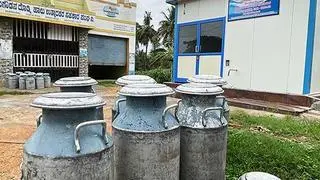Indian Sugar Mills Association (ISMA) has urged the government to allow manufacture of 100 per cent ethanol-compliant vehicles immediately rather than moving in phases so that the adoption of clean energy happens at the earliest, reducing pollution and dependence on crude oil.
Citing the Brazil model after taking a delegation to the South American country, ISMA President Aditya Jhunjhunwala said flex-fuel vehicles (FFVs) hybrid should be launched right away, instead of launching E20 vehicles as these 100 per cent ethanol-compliant vehicles can be tuned initially to run on gasoline blended with 20 per cent ethanol (E20). These FFVs can also run with any percentage blending above 20 per cent, he said.
In a letter to the government, Jhunjhunwala said, “Building E20-compliant vehicles will take 8-10 years from the launch date to cover the entire country.” Because of this it looks difficult to achieve 20 per cent blending target by 2025, he said.
The Brazil model
Currently, Brazil has three types of fuels dispensed at its petrol pumps—gasoline blended with 27 per cent ethanol, 100 per cent ethanol and a mix of both in any ratio as per consumer choice, he said. There is also gasoline blended with 25 per cent ethanol, which is available in select outlets and marketed at premium, Jhunjhunwala said, adding its sale is poor.
“In India, pumps can initially dispense E10 (petrol blended with 10 per cent ethanol) and E20 fuel and in due course, the E10 dispensing system can be used for pure ethanol (100 per cent), Jhunjhunwala told BusinessLine. He also said every year about 10 per cent of vehicles are released on road and at this rate, it will take 10 years to change the entire fleet, whether it is for E20 or FFVs.
In Brazil, the manufacturing costs as well as selling rates of both E20 and FFVs are almost same but FFVs offer an average of 20-22 km/litre. Though FFVs were introduced there in 2003, the country has achieved about 45 per cent blending. Even the cost of 100 per cent ethanol is 35 per cent cheaper than E27 fuel, he said.
‘Invest in FFVs’
The ISMA president also said since these manufacturers of cars are into the development stage for the launch of E20 vehicles, the automobile industry should look at investing in FFVs as the technology is already available.
Asked about the current scenario of lower planting areas under paddy and maize, two key feedstocks for grain-based ethanol plants, Jhunjhunwala said he can assure meeting ethanol target of cane-based plants. Out of 1,700 crore litres required to meet 20 per cent blending target, the government sees it coming from both the sources in equal amount-- 850 crore litre each by grain-based and cane-based ethanol plants.
Dual feed-based plants
However, the government has also been promoting dual feed-based plants so that the units can switch over to any feedstock available in case there is scarcity in one.
ISMA has also suggested the government to allow ethanol-run generators in place of depending on diesel to cut pollution.








Comments
Comments have to be in English, and in full sentences. They cannot be abusive or personal. Please abide by our community guidelines for posting your comments.
We have migrated to a new commenting platform. If you are already a registered user of TheHindu Businessline and logged in, you may continue to engage with our articles. If you do not have an account please register and login to post comments. Users can access their older comments by logging into their accounts on Vuukle.